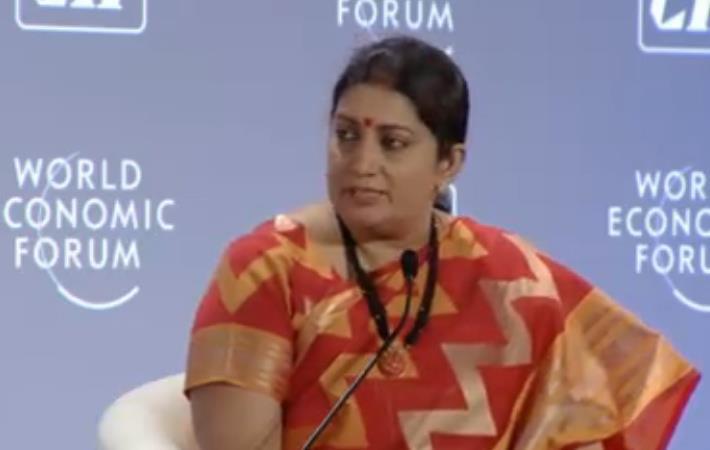The textiles industry has welcomed the appointment of Smriti Irani as the Union textiles minister in the new Narendra Modi-led National Democratic Alliance (NDA) government.
During her previous tenure as the textiles minister, Irani was instrumental in bringing Apparel and Made up Sector Special Package to help the textile sector and stabilise the exports.
Irani took oath as a minister with Cabinet rank along with the Prime Minister and other ministers at a ceremony held in Rashtrapati Bhavan yesterday. She has been allotted portfolios of two ministries—textiles; and women and child development—as per a press communique issued by the President’s secretariat.
“I am absolutely delighted at the news as Irani was one of the few ministers we have had who understood the importance of the domestic Sector. CMAI welcomes her once again and looks forward to working closely with her in the coming years for the furtherance of the garment industry,” said Rahul Mehta, president, The Clothing Manufacturers Association of India.
Listing the priorities for the new textiles minister in the coming months, Mehta said that Irani must take forward the several projects she initiated in the last term such as Market Study, Size India, taking handloom to modern retail, and Samarth amongst others. “She also needs to attend to some of the areas which need tweaking like the GST, Packaged Commodities Act, imports from Bangladesh, etc.”
Happy about continuation of Irani as the minister of textiles, Indian Texpreneurs Federation (ITF) convenor Prabhu Dhamodharan said the focus should be on bringing some fundamental changes in few important policies to help exports to grow. “A fibre neutral policy should be adopted to bring all textile raw materials under 5 per cent GST slab. Secondly, a Cotton Technology Mission must be constituted with an aim to achieve 1,000 kg per hectare yield in cotton cultivation. Thirdly, SME apparel makers should be helped to diversify and tap new international markets by forming special taskforce for each region.
“The government needs to move towards a scientific data collection mechanism of cotton cultivation and cotton pressing. There is a need for incentivisation of large-scale apparel manufacturing projects to achieve global scale. Lastly, the government must explore the possibility of engaging Indian and international brands and retailers more with Indian apparel clusters by way of yearly conclaves in important manufacturing clusters,” Dhamodharan added.
Mentioning that the Tiruppur Exporters’ Association (TEA) would extend full support and cooperation to the textiles minister, TEA president Raja M Shanmugham said the Union minister should address the issues like ATUFS pending claims, simplification of ATUFS guidelines, procedural issues in getting ROSCTL benefit, signing of free trade agreements with the EU and the UK, CECA with Australia, and CEPA with Canada.
Published On : 31-05-2019
Source : Fibre 2 Fashion

